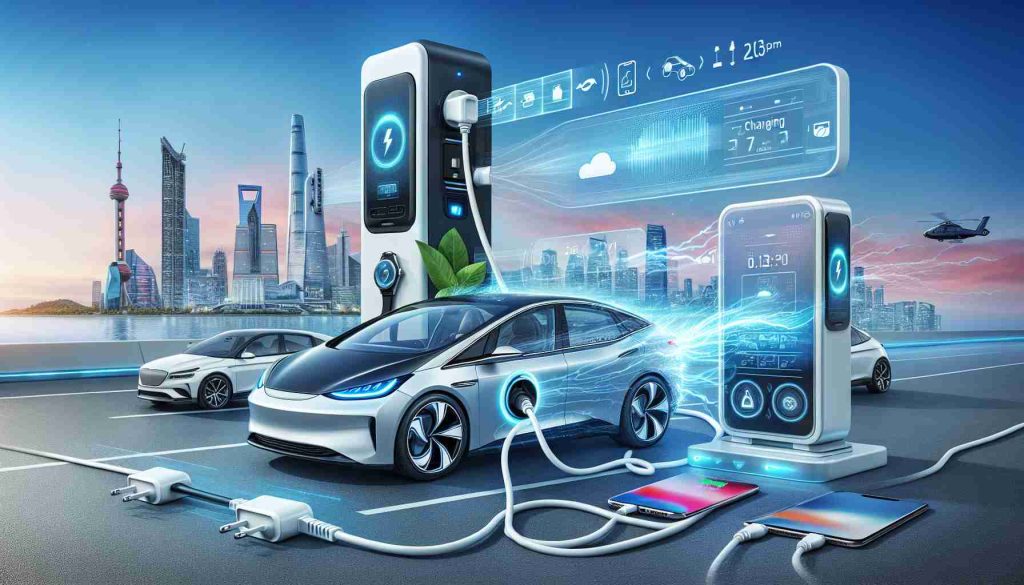
Researchers at the University of Liverpool have made a groundbreaking advance in battery technology, enabling swift charging for lithium-ion batteries. This development presents a stride toward surging the convenience and appeal of electric vehicles (EVs) and consumer electronics. As the world veers towards sustainable options, the EV market is poised to experience substantial growth, particularly with the potential reduction of charging times.
Summary
A research breakthrough at the University of Liverpool heralds a future where electric vehicles may charge as quickly as filling up a gas tank, and personal electronics only need minutes to power up. As EVs have their market share predicted to climb sharply, this innovation could help remove a significant barrier to widespread adoption – the lengthy charging process. Besides vehicles, this technology promises to revolutionize the charging of devices such as smartphones and laptops, enhancing convenience and productivity.
In the electric vehicle industry, faster charging times are akin to a new gear in acceleration, propelling the technology past a lingering obstacle that has curbed consumer enthusiasm. Additionally, as the demand for electric vehicles is stimulated by environmental policies, faster charging could tip the scales, cementing EVs as the preferred transportation mode.
The ripple effect of this research extends into consumer electronics, marking an opportunity to revolutionize how users interact with their gadgets. What was previously a several-hour wait for devices to recharge could become a brief interlude, a change poised to transform professional workflow and daily digital experiences.
However, scaling up from lab prototype to mass-market availability remains a challenge. The industry must balance cost, compatibility, and scalability while adapting production lines to incorporate the new technology. Nevertheless, the aim to disengage from the “low battery” dilemma drives forward research and investment.
While significant challenges lie ahead, from commercial viability to industrial adaptation, the prospect of a world where rapid charging is the norm is an electrifying notion for future commuters and tech users.
For further context and updates on the electric vehicle and consumer electronics markets, Electrive and TechCrunch provide up-to-date information and insightful analysis covering the latest industry trends and innovations.
Electric Vehicle Market
The electric vehicle industry is part of a transformative wave in the automotive sector. With concerns over climate change and the environmental impact of fossil fuels, governments around the world are enforcing stringent regulations to reduce carbon emissions. The EV industry capitalizes on this shift by offering sustainable mobility solutions. As battery technology improves, key players in this sector focus on enhancing the range, performance, and affordability of their offerings. A significant pain point, however, remains the charging infrastructure and duration.
Market forecasts suggest that the electric vehicle market will witness exponential growth in the coming years. Analysts predict that by 2030, EVs could represent a significant share of new car sales globally. This growth is supported by investments from traditional automakers and tech companies alike in electrification strategies and the development of more efficient battery technologies.
Consumer Electronics Market
Similarly, the consumer electronics market consistently demands innovation, particularly with batteries that can keep up with the increasing power requirements of modern devices. Speedy charging solutions present a competitive edge, catering to the fast-paced lifestyle of consumers who prioritize mobility and convenience.
Market Forecasts and Opportunities
The future seems bright for industries reliant on battery technology. With the advent of fast-charging lithium-ion batteries, these markets can expect an uptick in consumer demand. Forecasts for the battery industry are promising, with expectations of a multi-billion-dollar market size within the next decade. As consumers become more eco-conscious, products that offer speed and sustainability could dominate the market.
Challenges and Issues
Despite the rosy outlook, there are significant challenges that loom ahead, from overcoming technical and manufacturing hurdles to meeting the safety standards and regulations of the fast-changing battery industry. Rapid charging technology must not only be efficient but also cost-effective and durable to appeal to mass markets. Another challenge is the current charging infrastructure, which would require considerable upgrades to support wide-scale adoption of such fast-charging batteries.
There are also broader considerations around the sourcing of materials for lithium-ion batteries and the environmental impact of mining practices. Companies must navigate these issues carefully to maintain a sustainable supply chain and reduce the ecological footprint of their products.
Industry players are competing to secure their spot as leaders in battery innovation—this includes startups, established tech firms, and automotive manufacturers. Collaboration between sectors could be vital in overcoming the barriers to commercialization and achieving a sustainable future for transport and consumer electronics.
To keep up with the electric vehicle industry and consumer electronics market updates, consider visiting relevant and reputable industry news sources like Electrive or TechCrunch for the latest information and developments. These platforms offer a comprehensive overview of emerging trends, market analysis, and industry breakthroughs that shape the landscape of technology, electric vehicles, and sustainable energy solutions.
[embedded content]

Igor Nowacki is a fictional author known for his imaginative insights into futuristic technology and speculative science. His writings often explore the boundaries of reality, blending fact with fantasy to envision groundbreaking inventions. Nowacki’s work is celebrated for its creativity and ability to inspire readers to think beyond the limits of current technology, imagining a world where the impossible becomes possible. His articles are a blend of science fiction and visionary tech predictions.
